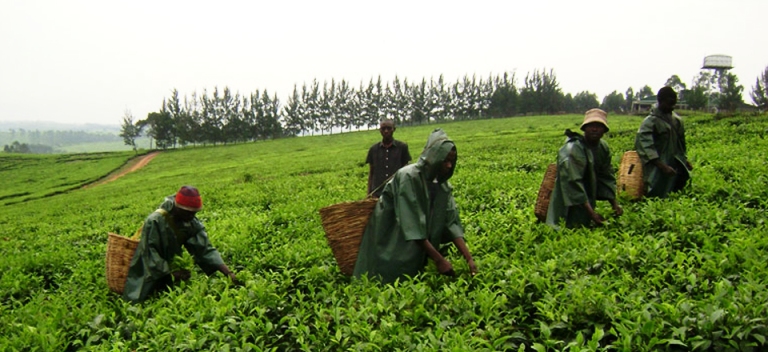Tea farming in Kigezi Sub-region is experiencing a much-needed revival. The global price of processed tea has risen from $0.70 (Shs2,552) to $1.35 (Shs4,921) per kilogramme. This increase has brought relief and renewed optimism among farmers who had nearly given up on the enterprise.
Just last year, several farmers in Kanungu District uprooted their tea plantations in despair. Prices for green tea leaf had fallen drastically, from Shs550 to Shs100 per kilogramme. At the same time, fertiliser prices jumped from Shs100,000 to Shs270,000 per 50kg bag. Profit margins vanished, and many tea fields were abandoned.
Now, some of those same farmers regret their decision to quit. Mr. Frank Byaruhanga, chairperson of tea farmers in south western Uganda, highlighted the rebound in the market. Green leaf prices have climbed to Shs250, and Ugandan processed tea is now performing well at the Mombasa auction.
While prices have improved, challenges persist. Mr. Byaruhanga has urged the government to establish clear regulations to ensure quality control. He also stressed the need for better rural roads to transport tea from gardens to factories without delay or damage.
Financial support is another key concern. Byaruhanga called for a tax holiday for processors and exporters. This, he said, would help them recover from previous financial shocks. He also reminded the government about the Shs92 billion owed to nursery bed operators for seedlings supplied between 2016 and 2022.
Similar concerns were echoed by Ms. Grace Kyomugisha, board chairperson of Kayonza Tea Growers Factory. She noted that their facility operates four green tea leaf processing lines. Government assistance through interest-free loans—about Shs2 billion per line—would enhance output and efficiency. With current global prices, she believes the loans would be easy to repay.
Still, not every farmer is benefiting. Mr. Andrew Mwebesa from Kabale District shared his frustration over unpaid deliveries. Since 2023, processors have failed to pay for the green tea leaves he supplied. The debt has made it hard for him to pay his workers, and he’s now considering uprooting his tea.
Much of the hardship began with the Russia-Ukraine conflict. The war caused a spike in fertiliser prices, making production too costly for many small-scale farmers. As a result, some gardens were neglected, and overall tea quality declined.
Mr. John Kamara, Member of Parliament for Bufumbira North and owner of 3,000 acres of tea, believes Uganda should pivot to organic tea farming. Global markets increasingly prefer organic products, which sell at higher prices. Kamara also pushed for the promotion of estate-based factories, which often produce better quality tea than cooperative-owned ones.
With prices on the rise, the future looks brighter for tea farming in Kigezi. Still, lasting success will require strategic government support, quality improvements, and sustainable farming practices. Only then can Uganda fully capitalize on the current global tea boom.

